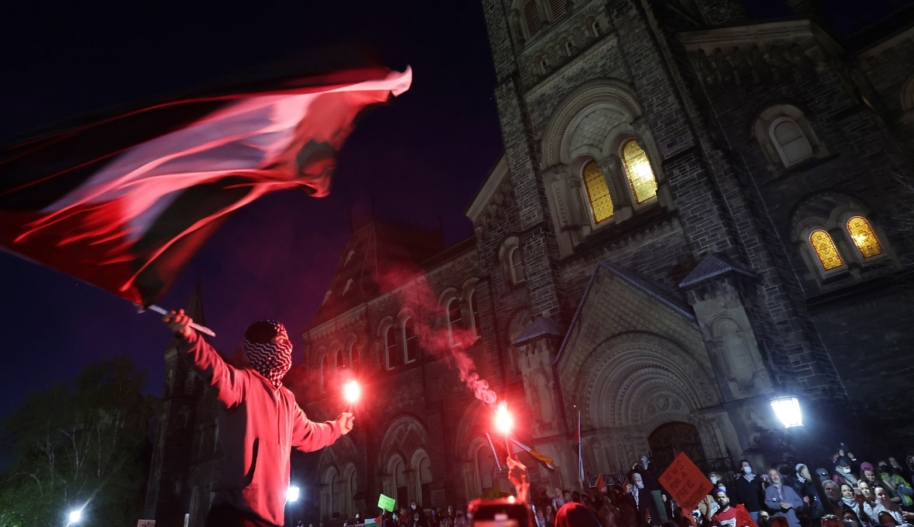Toronto, ON – July 2, 2024 – Amnesty International Canada and the Canadian Lawyers for International Human Rights (CLAIHR) regret the Ontario Superior Court’s decision to grant the injunction sought by the University of Toronto. The ruling is a setback on the right of peaceful assembly, fails to protect at-risk encampment members and will have a chilling effect on future peaceful demonstrations. The organizations call on the University’s administration to uphold the rights of the encampment members and continue dialoguing with them, despite the ruling.
“The right of peaceful assembly is protected under both international and domestic law and is fundamental to express political opinions, amplify marginalized voices, and engage with those who wield power in any society,” said Ketty Nivyabandi, Secretary General of Amnesty International Canada’s English-speaking section. Human Rights Defenders who advocate for the full protection of the human rights of Palestinians, including those partaking in the encampment, must be able to exercise their right of peaceful assembly without intimidation, harassment, or discrimination. Amnesty International is disappointed that the court’s ruling fails to uphold the rights of Human Rights Defenders.”
“Today’s decision represents a troubling setback to the fundamental right to freedom of peaceful assembly,” said Henry Off, Board Member at CLAIHR. “It also sets a dangerous precedent that could restrain human rights advocacy elsewhere.”
The encampment, which was set up on May 2, demands that the university divest from companies who benefit from, or contribute to, Israel’s war in Gaza and cut ties with Israeli academic institutions operating on settlements in the Occupied Palestinian Territories, among other measures. The University of Toronto administration sought an injunction from the Ontario Superior Court of Justice that would clear the encampment and place significant barriers on the ability to protest or assemble at or near University of Toronto property.
Amnesty International and CLAIHR jointly intervened in the hearing and provided the court with a written submission on the right to freedom of peaceful assembly and permissible restrictions of the right under international law. The organizations emphasized that peaceful assembly may be disruptive, provoke a hostile reaction from members of the public, or take place on private property, however this does not, on its own, justify restriction of the assembly. They noted that the right to peaceful assembly is vital to the defense of human rights and called on the court to consider the scope of the right when assessing the harms that would result from granting the injunction.
Adrienne Lei and Megan Phyper of Dewart Gleason LLP generously represented Amnesty International Canada and CLAIHR on a pro bono basis. We thank them for their time, skill, and expertise.
Header photo credit: Steve Russell/Toronto Star via Getty Images






















